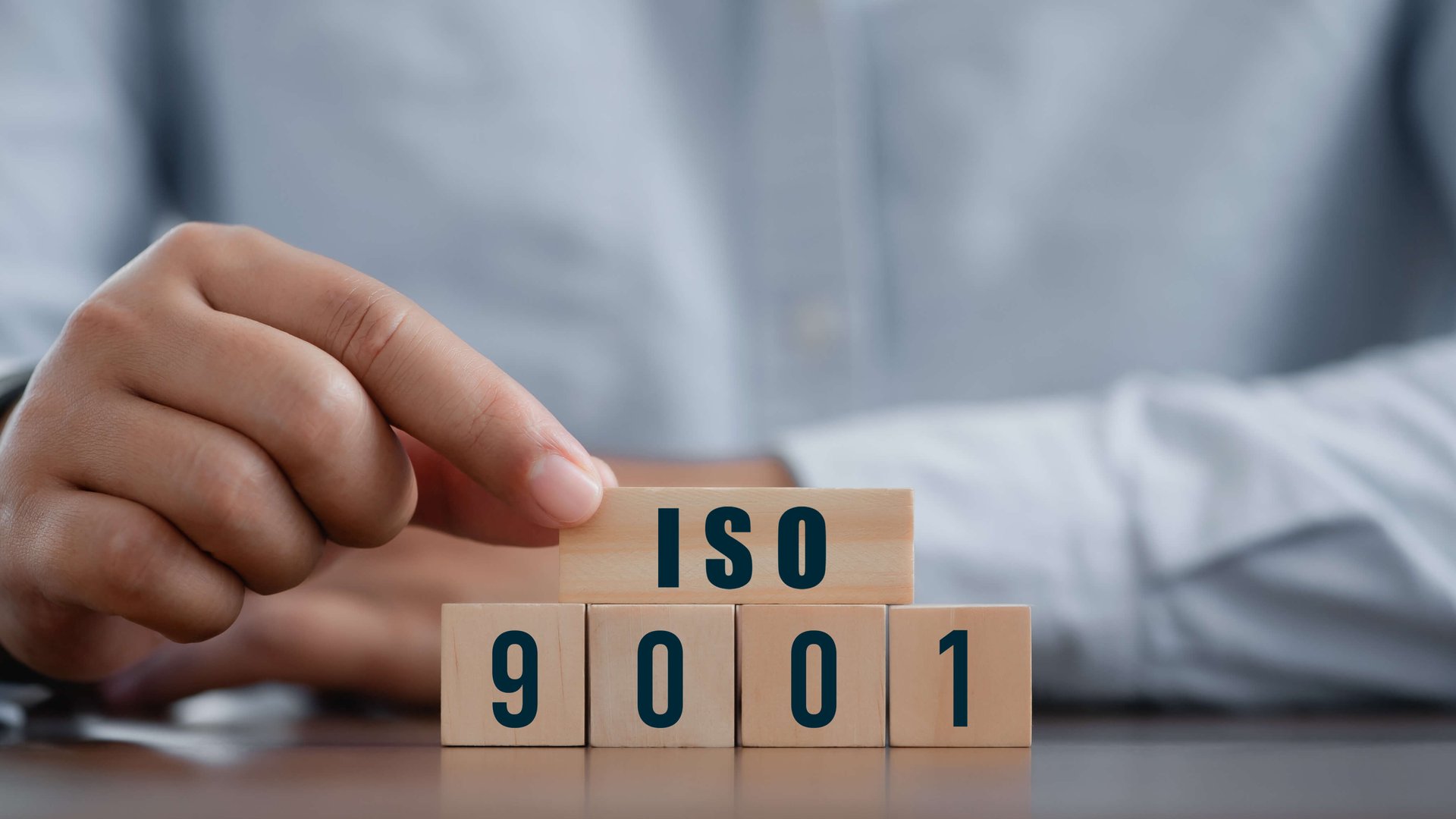Article
What is ISO Certification? A Simple Guide for Businesses
-
 Editorial team
Editorial team
-
- Quality Management System
- 3 min reading

ISO certification - a stamp of quality for businesses
ISO certification is tangible proof that your company meets internationally recognized standards for quality, environment, safety or information management. It is proof that your business works in a structured way, with clear processes and a focus on continuous improvement.
What is ISO?
ISO stands for International Organization for Standardization, a global network that develops standards for everything from quality management to environmental management and information security. The standards are developed in collaboration with experts and stakeholders in each field. The aim is to improve safety, quality, transparency and efficiency in organizations around the world.
ISO certification
ISO certification means that an independent party has verified that a company meets the requirements of a specific ISO standard. The certification is issued by an accredited certification body, often approved by SWEDAC in Sweden. The certificate shows that the business complies with the standard and works according to structured processes.
ISO audit
An ISO audit is a mandatory part of the ISO certification process. A certification auditor reviews the organization's documentation, processes and compliance through interviews, spot checks and site visits. Auditors often work for accredited certification bodies and must have industry-specific expertise.
5 business-critical reasons for ISO certification
1. Increased business credibility
ISO certification signals to customers, suppliers and owners that you are in control of quality, health and safety and risk - strengthening trust throughout the value chain.
2. increased competitiveness
Many tenders, partnerships and export opportunities require certification. A certificate is often a door opener to new markets and customer segments.
3. more efficient ways of working
Certification creates structure, clarifies responsibilities and reduces waste - resulting in better output in both production and administration.
4. lower operational risks
Systematic management reduces the risk of deviations, downtime, complaints and work environment incidents - with fewer hidden costs as a result.
5. continuous improvement
Certification commits to annual follow-up and improvement work - which drives business development over time, not least in line with increased external requirements.
Common ISO certifications
ISO standards are global and used in both private companies and public organizations. Here are five of the most popular ones:
- ISO 9001
- ensures an effective quality management system with a focus on customer satisfaction, clear processes and continuous improvement. - ISO 14001
- helps companies build a structured environmental management system for sustainable development, resource efficiency and compliance with environmental legislation. - ISO 27001
- sets requirements for a high level of information security, for the protection of data and IT systems. - ISO 45001
- supports the creation of a health and safety management system that prevents accidents and ensures a safe and healthy working environment. - ISO 22000 - used in the food industry to establish a robust food safety system throughout the chain.
Requirements for ISO certification
Management system in place
The company needs to have a management system that follows the chosen ISO standard. With the help of a management system from AM System, it becomes easy to structure, document and maintain the work according to the right requirements.
Clear documentation
Documentation of processes, goals and responsibilities must be up-to-date and traceable. Through a document management system, the documentation is collected, updated and traceable - something that the audit is based on.
Management of deviations
The company should be able to identify, document and resolve deviations. With an effective case management system, you can follow up on deviations and take action quickly and traceably.
Internal audit
Prior to the certification audit, internal audits need to be conducted. Use AM Systems' process mapping capabilities to analyze, develop and monitor your internal operations.
The process to ISO approval
Getting ISO certified doesn't require everything to be perfect from the start - but it does require preparation. Here are some steps to consider:
1. Set the goal
Start by defining the purpose of the certification. Which ISO standard is best suited to your needs - is it quality, environment, health and safety or perhaps information security? A clear goal will help you focus on the right areas and motivate your organization internally.
2. Map your processes
To succeed with certification, you need to understand how your business actually works in practice. Review workflows, procedures and responsibilities, identify any gaps or areas for improvement. Process mapping provides a structured view of the current situation and shows where adjustments are needed.
3. Document the structure
ISO work is based on clarity and traceability. Therefore, you need to bring together your governing documents - such as policies, procedures and objectives - in a consistent and organized way. It's not about creating lots of documents, but about clearly showing how you work.
Achieve ISO certification through AM System
AM System provides you with a robust and scalable platform to achieve and maintain ISO certification. Our platform with integrated document control and case management provides a solid foundation for creating structure, ensuring compliance and achieving a global quality stamp.
Get a demo
Ready to make work easier - and more enjoyable?
Want to see for yourself how AM System can make a difference for you? Book a demo and discover how easy it is to create structure, efficiency, and seamless workflows in your daily operations.
